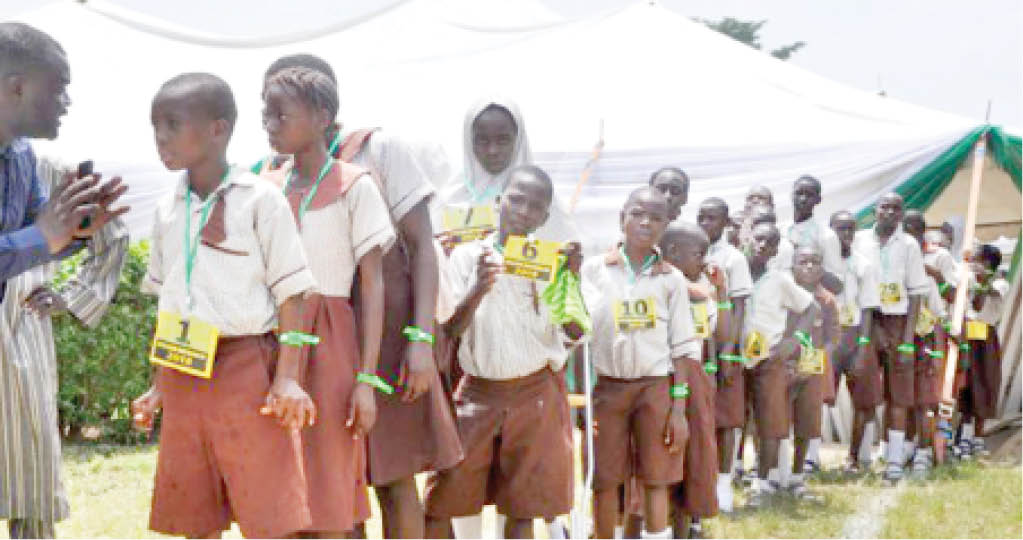The year we have all been reminded that our lives are literally in our hands. It is 2020 – the year we have all been forced to keep our hands and the environment clean, sanitize our hands frequently and even wear nose masks.
As a relatively small act, handwashing plays a key role in ensuring good health, and is the first step in maintaining generally good hygiene.
Many of the illnesses Nigerians battle are largely preventable.
According to UNICEF, over 870,000 children across the world are lost every year to illnesses that are preventable (respiratory and gastrointestinal infections)!
Preventable, because this number can be reduced by at least half, merely by maintaining a higher level of hygiene.
The simplest of these measures is frequent hand washing.
Merely keeping a clean environment, and clean personal hygiene will eliminate most of the basic respiratory and digestive illnesses that cause the death of Nigerians.
A coalition that has championed the message of handwashing is the Global Handwashing Partnership (GHP).
In August 2008, a partnership launched the Global Handwashing Day to motivate and mobilise people across the globe to improve handwashing habits.
The Global Handwashing Day is now observed annually by over 200 million people on October 15.
Every year, numerous institutions and organisations culminate their hygiene activities for the year with massive projects.
In 2018, a College of Technology in India, a country where about 50 million people still defecate openly, broke the Guinness World Record for most hands washed in a day.
Away from GHD, in Nigeria, a 2019 report released by the Federal Ministry of Water Resources and UNICEF, stated that 46 million people are still practising open defecation.
This is another factor that has continued to affect health and hygiene in the country.
In spite of these alarming figures, the report admits that Nigeria “is making some progress in improving access to water, sanitation and hygiene (WASH) to its population, with 70 percent of Nigerians having access to basic drinking water services.” There was a drop from 2018’s 47 million people who openly defecated.
These figures do not slump and increase merely because of ‘campaigns’ but as a result of months and years of desensitization in communities.
Take, for instance, Gidan Darge, Jigawa, one of the first communities in Nigeria to be declared ‘Open Defecation free’.
The community was a part of UNICEF’s Community-led Total Sanitation (CLTS) Programme – an initiative focused on ensuring that families construct their own latrines, have access to safe water and practise good handwashing techniques.
UNICEF and the Nigerian Government then installed a hand pump that helped the community by providing safe drinking water for everyone. This also enabled the practice of handwashing.
Still, with over 200 million Nigerians and over 80 million living on less than $1, the government understandably totters under the strain to keep lowering the figures.
Thankfully, for years, health-based organisations, influential individuals and Nigerians with ingenious ideas have also been at the forefront of educating and informing the public about the importance of handwashing with soap.
In 2018, Hope and Dream, a non-governmental organisation, sensitised 782 students in six schools in Delta State, on handwashing hygiene and proper handwashing procedures.
Dettol expanded its commitment to handwashing and personal hygiene with a full year of activities.
There have been initiatives such as the New Moms Program and School Hygiene Program.
Dettol launched a nationwide campaign called ‘Clean Naija’, it was an integrated multi-level campaign with the aim of creating awareness, education and driving behavioural change to achieve a cleaner and healthier Nigeria.
With the advent of COVID, even more organizations and individuals have unified voices.
In March 2020, Reuters reported about Bamigbose Adams, a Nigerian artisan who was turning old metal drums into custom hand-washing basins in Lagos.
That was his contribution to the overarching message. No matter how seemingly small, he was able to impact his community.
Since November 2020, Project SafeUp, an initiative of My World of Bags (MWOB), an Ibadan-based bag design and manufacturing company, and Mastercard Foundation, kickstarted a multi-faceted awareness campaign in Oyo, Ekiti, Osun, Ondo and Lagos.
The initiative aims to produce and distribute 250 million PPE materials while raising awareness about the pandemic and the need to wear masks and cultivate good handwashing hygiene.
At a time when the world is fighting for survival, it has become more expedient that everyone plays their part in ensuring our collective safety.
Simple actions like handwashing, wearing a nose mask, sanitizing your hands frequently will go a long way in helping the world overcome not just the pandemic, but simple preventable diseases as well.
There is still so much that has to be done to sensitize people – particularly children, who are the most susceptible to disease and infection.
It is critical to understand and appreciate the importance of keeping clean hands to ensure good health. Proper and frequent handwashing has to become a part of the culture, in order to ensure good health and long life.
One of the lessons 2020 has taught us is that washing hands can actually save a life.

 Join Daily Trust WhatsApp Community For Quick Access To News and Happenings Around You.
Join Daily Trust WhatsApp Community For Quick Access To News and Happenings Around You.


